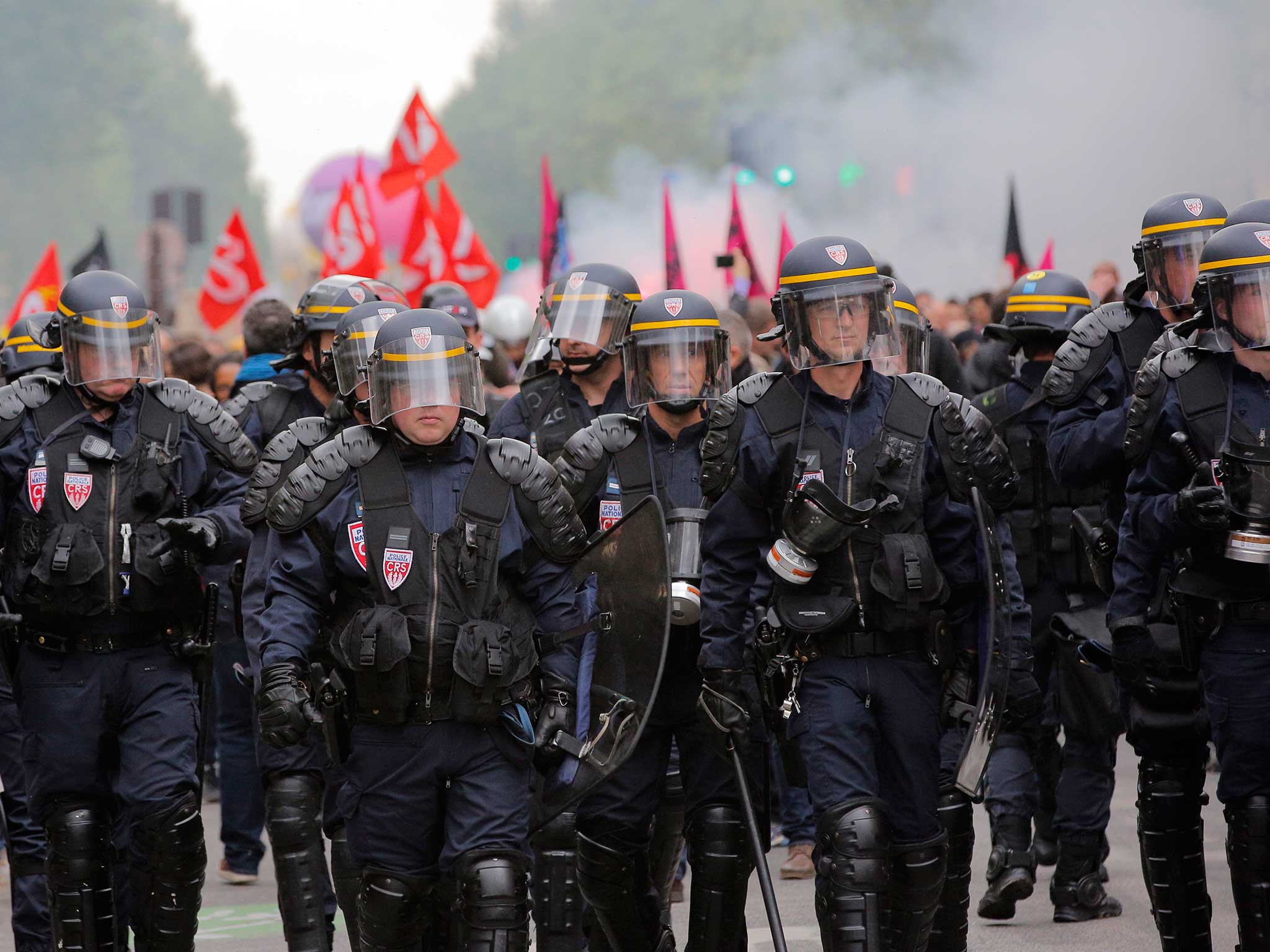France protests: Protests erupt across country as government pushes through labour reforms
Reforms will make it easier for employers to terminate long-term contracts if their businesses are struggling
Your support helps us to tell the story
From reproductive rights to climate change to Big Tech, The Independent is on the ground when the story is developing. Whether it's investigating the financials of Elon Musk's pro-Trump PAC or producing our latest documentary, 'The A Word', which shines a light on the American women fighting for reproductive rights, we know how important it is to parse out the facts from the messaging.
At such a critical moment in US history, we need reporters on the ground. Your donation allows us to keep sending journalists to speak to both sides of the story.
The Independent is trusted by Americans across the entire political spectrum. And unlike many other quality news outlets, we choose not to lock Americans out of our reporting and analysis with paywalls. We believe quality journalism should be available to everyone, paid for by those who can afford it.
Your support makes all the difference.Violent protests have erupted across France after the Socialist-led government steam-rollered parliamentary and public opposition and imposed market-friendly reforms to the country's labour laws.
Molotov cocktails and smoke-bombs were hurled at police in Paris, a dozen Socialist Party offices were vandalised and there were scuffles and arrests in Caen, Toulouse, Rennes Lille and Le Havre.
Despite a deep schism within the Socialist parliamentary party, Prime Minister Manuel Valls comfortably survived an opposition vote of censure in the National Assembly. Only 246 deputies voted for the no confidence motion – 42 fewer than the number needed to bring the government down.
President François Hollande and Mr Valls decided earlier this week to use their constitutional powers to impose the labour law reforms by decree. Protest marches in Paris and most other larger French cities this afternoon attracted tens of thousands of supporters – including a fringe of hooded youths who fought running battles with riot police.

The hard left and anarchist youths also attacked television journalists and scuffled with the stewards deployed by trade unions.
President Hollande, facing disastrous poll ratings less than a year before presidential elections, insists that simplification of France’s complex labour laws will create tens of thousands of jobs. In a speech, he said that the reforms would bring a new “suppleness” to labour relations which would be good “for workers and employers” and bring “progress” to France.
Hardline trade unions and a bloc of traditionalist Socialist politicians – including several former ministers and the Mayor of Paris, Anne Hidalgo – oppose the changes. So do 70 per cent of French people.
Moderate trade union federations agreed the reforms after the government softened the more radical original proposals. Militant unions detest the fact that the changes would allow factory-by-factory or office-by-office deals between workers and bosses to override national agreements and some aspects of labour law.
With elections looming next April and May, the reforms have become a symbol of President Hollande’s switch two years ago towards market-friendly policies which have angered the hard left and traditionalist members of his own Socialist Party.

The reforms, though scarcely radical compared to labour laws in other European countries, have provoked a sometimes violent street protest movement in recent weeks. They have been rejected as an “empty shell” by the centre-right opposition – even though they go beyond anything attempted by successive centre-right governments in France.
When it became clear earlier this week that 50 Socialist deputies would try to block the reforms in the National Assembly, Mr Hollande and Mr Valls resorted to the powers of decree granted by article 49-3 of the constitution of the Fifth Republic. Under this article, opponents can only block the reforms if they win a confidence vote against the government.
A censure motion tabled by the centre-right opposition was defeated – allowing the law to pass through the lower house of parliament. A bloc of 56 Socialist, Communist and Green deputies fell just short of gaining enough support to table their own rival, censure motion last night.
Such a deep schism in government ranks is unprecedented in recent French political history. Ministers accused the “frondeurs” or rebels of a cynically calculated act of disloyalty – posturing to their hard-left sympathisers while avoiding bringing down the government and risking an early election.
The reforms are the first serious attempt by any recent administration to lighten the regulatory obstacles to job creation in France. They will make it easier for employers to terminate long-term contracts if their businesses are struggling. They will permit local agreements between employers and workers to modify the 35-hour working week and other labour regulations.
The new law also offers new workers’ rights. Office workers will have periods at the weekend and in the evening when they can switch off from work emails and phone calls.
Subscribe to Independent Premium to bookmark this article
Want to bookmark your favourite articles and stories to read or reference later? Start your Independent Premium subscription today.

Join our commenting forum
Join thought-provoking conversations, follow other Independent readers and see their replies
Comments